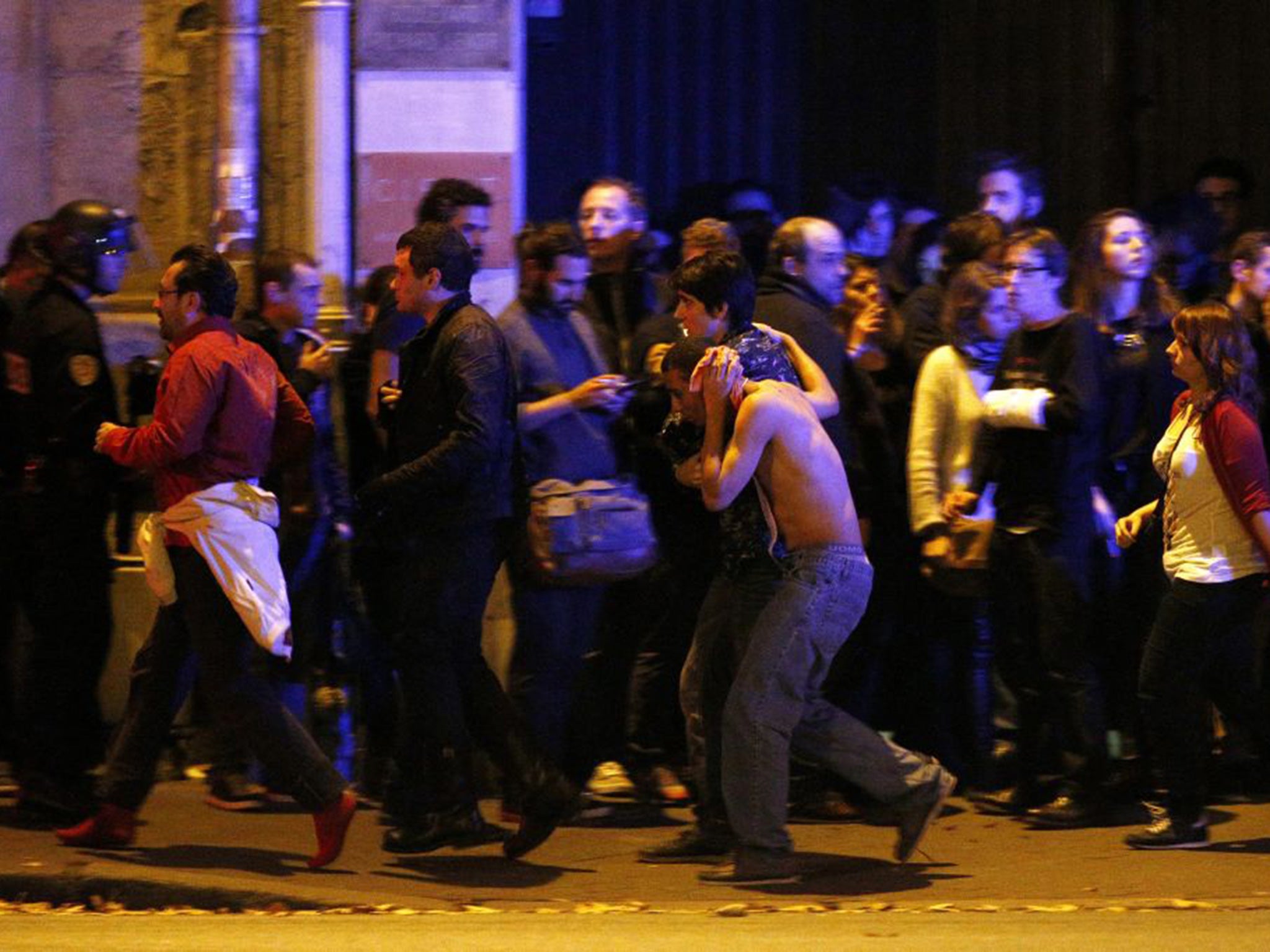Parsons Green attack: No evidence Isis is systematically using refugees for terror plots, research finds
Europol warns that some refugees could be vulnerable to Isis propaganda but no direct link found

Your support helps us to tell the story
From reproductive rights to climate change to Big Tech, The Independent is on the ground when the story is developing. Whether it's investigating the financials of Elon Musk's pro-Trump PAC or producing our latest documentary, 'The A Word', which shines a light on the American women fighting for reproductive rights, we know how important it is to parse out the facts from the messaging.
At such a critical moment in US history, we need reporters on the ground. Your donation allows us to keep sending journalists to speak to both sides of the story.
The Independent is trusted by Americans across the entire political spectrum. And unlike many other quality news outlets, we choose not to lock Americans out of our reporting and analysis with paywalls. We believe quality journalism should be available to everyone, paid for by those who can afford it.
Your support makes all the difference.There is no evidence that Isis is systematically using the refugee crisis to smuggle fighters into Europe or directly targeting asylum seekers for radicalisation, research has found.
The arrest of two refugees in connection with the attempted bombing on a London Underground train has reignited public debate, following four previous terror attacks in the UK this year.
Both men, an 18-year-old from Iraq and 21-year-old Syria, remain in custody after police were granted more time to question them over an attack that injured 30 people at Parsons Green station.
Isis claimed responsibility for the blast, saying it was carried out by “soldiers of the caliphate” and threatening further atrocities in the UK.
New research by the Institute for the Study of War (ISW) warned that the terrorist group was expanding its campaign in Europe as it loses territory in the so-called Islamic State.
The US-based think tank said Isis continues to plan, resource, and execute attacks from its remaining safe havens in Syria, Iraq and Libya.
This year has seen atrocities spread to the UK and Spain, as well as in Sweden and Finland, where the ISW said Isis was targeting “vulnerable populations”.
Asylum seekers launched two terror attacks in Germany last year, while the group used the refugee crisis as cover to smuggle the “supercell” of foreign fighters that carried out the Paris and Brussels attacks back into Europe using fake passports.
The ISW concluded that while refugees have conducted terror attacks in other countries, there was no evidence of “coordinated Isis involvement”.
Researchers warned that a larger threat came from the 2,500 remaining foreign fighters in Isis’ ranks in Syria and Iraq, who are able to form links with jihadi and criminal networks in their home countries even if they do not return.
The ISW warned that Isis would continue to organise and inspire terror attacks in Europe even while much of its physical caliphate is being wiped out.
“The anti-Isis coalition must also refocus on addressing the grievances and fears of vulnerable Sunni populations that make them vulnerable to Isis messaging,” the report concluded.
“The widespread perception that European states and the US are aligned with Iran and the Assad regime against Sunni populations in Syria and Iraq, as well as the rise of anti-Muslim sentiments and perceived anti-Muslim policies in Europe and the US will continue to fuel toleration of and limited but growing support for Isis attack operations in the West.
“Isis is waging a social and informational campaign to gain support among Western populations - Western states will not be able to kill and arrest their way out of this problem.”
The number of arrests for terror offences in the UK has risen almost 70 per cent in a year to a record high of 379, with the vast majority of suspects being British or dual nationals.
Ben Wallace, the security minister, told The Independent 19 terror plots have been foiled in the same period but warned that the tempo of attempted attacks was increasing.
Europol, the EU’s law enforcement agency, said there was a total of 142 terror attacks and attempts in just eight countries in 2016 – with more than half reported by Britain.
Its 2017 EU Terrorism Situation and Trend Report said Isis had exploited the flow of migrants to Europe to deploy terrorists for attacks and would continue the strategy.
But the report found there was “no concrete evidence that terrorist travellers systematically use those flows of refugees to enter Europe unnoticed”.
Europol previously said jihadis using the migrant route tended to be “expendable footmen”, while the most highly trained and dangerous operatives were likely to use false documents and more sophisticated methods.
“Given that it is in the interests of Isis to inflame the migration crisis to polarise the EU population and turn sections of it against those seeking asylum, there is a risk of some infiltration of refugee camps and other groups,” said a report issued in December.
“The extent of this is unknown, however, making the subject susceptible to exaggeration and exploitation especially by populist factions and extreme right-wing parties.”

Europol said Isis was also seeking to exploit the crisis ideologically, with German authorities reporting that jihadis have made at least 300 attempts to recruit refugees attempting to enter Europe.
“A real and imminent danger is the possibility of elements of the (Sunni Muslim) Syrian refugee diaspora becoming vulnerable to radicalisation once in Europe and being specifically targeted by Islamic extremist recruiters,” a report warned.
“It is believed that a number of jihadists are travelling through Europe for this purpose.”
Europol also reported that refugees and ethnic minorities were facing increased violence throughout the EU, saying the vote for Brexit generated a spike in hate crime in the UK.
The agency is recruiting 200 counter-terror investigators to be deployed to migration hotspots in Greece and Italy to identify suspected terrorists and criminals in what Europol called “a second line of defence”.
The two refugees arrested in connection with the Parsons Green attack are believed to have entered the UK several years ago as children, being taken in by the same foster family in Surrey.
The 18-year-old Iraqi and 21-year-old Syrian remain in custody as searches continue at their former homes and a chicken shop where the older suspect worked.
The younger suspect was arrested on Saturday morning in Dover, where he was attempting to buy a ferry ticket to France.
The older man, named locally as Yahyah Farroukh, was detained by undercover police, including one disguised as a homeless man, outside a fast food restaurant in Hounslow later on the same day.
Scotland Yard said magistrates had granted warrants allowing the 18-year-old to be held until Saturday, and Farroukh until Thursday.